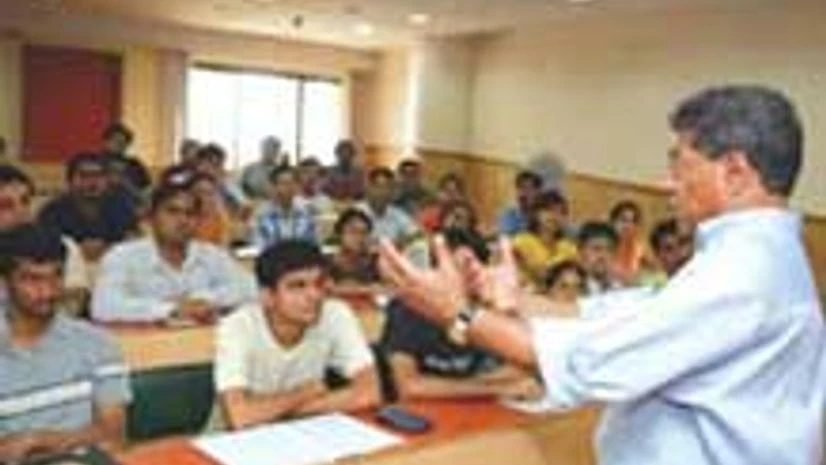The Maharashtra government has asked the AICTE to stop creating new professional schools.
Slowdown is bringing the basic engineering courses back in demand.
The above three examples show how the tide is turning back in favour of traditional engineering courses.
Civil and mechanical engineering courses, which have traditionally been the building blocks of engineering in India, continue to attract students. This, despite the fact that institutes keep introducing new areas such as aeronautics, biomedical and automotive engineering.
“With a slowdown in the general information technology/information technology-enabled services sectors and an economic slowdown, it is time for consolidation and back to basics,” says Shankar S Mantha, chairman of AICTE. He adds the trend today is to return to core engineering branches such as the civil, electrical and mechanical streams.
According to Mantha, AICTE has been receiving 80-90 requests from engineering institutes a year, to close some of their non-productive departments.
“These pertain to engineering courses in the field of computer science, IT, chemical engineering, production engineering and instrumentation that have seen lesser student interest and hence the institutes want them to close down,” adds Mantha.
Mantha says the AICTE cannot allow this, because this would lead to lop-sided growth for other streams such as mechanical and civil engineering. “As a policy, these institutes should have a broader pattern of education.”
The Maharashtra government’s higher and technical education department has already made a presentation to the AICTE asking it to stop creating professional schools in the state. It said more than 34 per cent of engineering seats in the state stay vacant.
According to Mantha, the AICTE has asked for some clarifications from the officials and will then place it before a committee to take a call.
With many students wanting to pursue an MBA course after engineering, field-jobs as well as factory-related ones are no longer preferred, says the admissions head of a large Chennai-based engineering school.
Shubha Pandit, principal, K J Somaiya College of Engineering, says chemical, production and civil engineering courses were not popular across the engineering institutes in the past.
Students might not be interested in these streams due to the fact that blue-collar jobs are more prevalent in these courses, she adds.
However, “compared to Y2K period when IT was most popular, computer engineering became popular later on and currently mechanical and civil engineering courses are riding the wave.”
Dearth of jobs is a key reason why students are moving away from certain streams. Industry players say India does not need all the engineers it enrolls every year. “We enrol 750,000 engineering students every year, but hardly 100,000 engineers are required on a yearly basis. No wonder that most engineers have to find a job in services sector,” says an recruitment firm head.
TMI Group, an HR and recruitment services firm, released a survey last week, highlighting that over 98 per cent of engineering graduates in Hyderabad are open to taking up jobs in small and medium enterprises (SMEs). Some 328 BE / B.Tech graduates from across engineering streams and with zero to five years of work experience, participated in the survey.
However, the SMEs have stopped going to campuses as large IT companies have taken over. “Given the number of engineering graduates adding to the pool of job-seekers every year and recruitment in large companies falling drastically, this is the right time for SMEs to highlight the advantages of working with the SME sector and the benefits they provide to their employees, grabbing their due share of talent, finally putting an end to their talent woes,” says T Muralidharan, executive chairman, TMI Group.
According to the higher education report by FICCI and Ernst & Young, there were 3,498 AICTE-approved engineering institutes in 2012-13.
According to AICTE data, there are more than 200 engineering streams. These could be grouped into 15 major groups such as mechanical and allied, electrical and allied, computers and allied, chemical and allied, among others.

)
